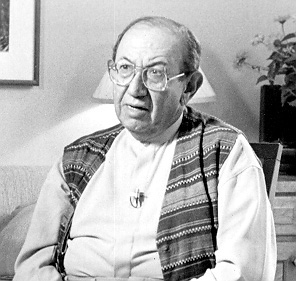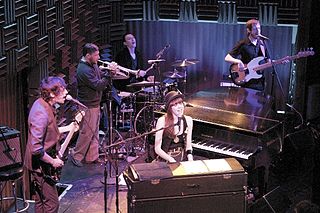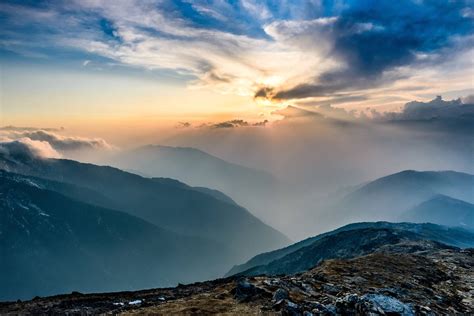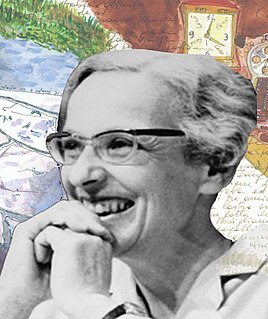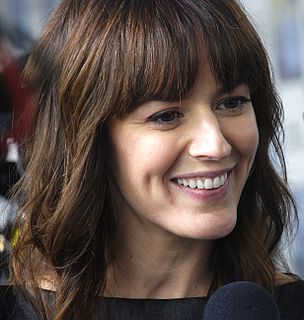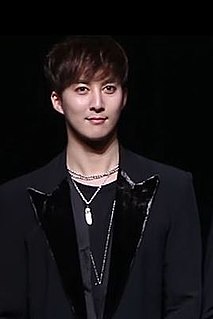Top 81 Jung Quotes & Sayings - Page 2
Explore popular Jung quotes.
Last updated on October 6, 2024.
I'm not close to him." He looked at me defiantly. "But he's put his whole life into this. He's no Freud or Jung or Pavlov or Watson, but he's doing something important and I respect his dedication - maybe even more because he's just an ordinary man trying to do a great man's work, while the great men are all busy making bombs.
I definitely have recurring dreams. My dreams are crazy and surreal, which is why I appreciate Carl Jung, 'cause I feel that there has to be some kind of correlation. My dreams are like surreal sci-fi thrillers, and I don't spend time watching stuff like that. I never grew up on stuff like that. I've always just had very, very vivid dreams. This is awful to say, but, lately, I've been dreaming about witnessing murder a lot. What does this mean?
Hwang Jung-eun is one of the brightest stars of the new South Korean generation - she's Han Kang's favourite, and the novel we're publishing scooped the prestigious Bookseller's Award, for critically-acclaimed fiction that also has a wide popular appeal. She stands out for her focus on social minorities - her protagonists are slum inhabitants, trans women, orphans - and for the way she melds this hard-edged social critique with obliquely fantastical elements and offbeat dialogue.
Whether looked at from outside or inside, bodies dissolve, matter vanishes, spirit remains - once we bother to go into the matter. "Spirit is the living body seen from within, and the body is the outer manifestation of the living spirit." Extend this statement by Carl Jung to all bodies from electrons to galaxies, and you have the ultimate physics
Carl Jung tells in one of his books of a conversation he had with a Native American chief who pointed out to him that in his perception most white people have tense faces, staring eyes, and a cruel demeanor. He said: “They are always seeking something. What are they seeking? The whites always want something. They are always uneasy and restless. We don't know what they want. We think they are mad.
I can still recall vividly how Freud said to me, "My dear Jung, promise me never to abandon the sexual theory. That is the most essential thing of all. You see, we must make a dogma of it, an unshakable bulwark" ... In some astonishment I asked him, "A bulwark-against what?" To which he replied, "Against the black tide of mud"-and here he hesitated for a moment, then added of occultism.
The psyche is the inward experience of the human body, which is essentially the same in all human beings, with the same organs, the same instincts, the same impulses, the same conflicts, the same fears. Out of this common ground have come what Jung has called the archetypes, which are the common ideas of myths.
Number, as it were, lies behind the psychic realm as a dynamic ordering principle, the primal element of which Jung called spirit. As an archetype, number becomes not only a psychic factor, but more generally, a world-structuring factor. In other words, numbers point to a background reality in which psyche and matter are no longer distinguishable.
What we, thanks to Jung, call "synchronicity" (coincidence on steroids), Buddhists have long known as "the interpenetration of realities." Whether it's a natural law of sorts or simply evidence of mathematical inevitability (an infinite number of monkeys locked up with an infinite number of typewriters eventually producing 'Hamlet,' not to mention 'Tarzan of the Apes'), it seems to be as real as it is eerie.
You use words like 'introvert' and 'extrovert,' various traits of a personality. A lot of that stuff, we used in drama school, and that was kind of interesting, to realize my teachers sort of ripped off a lot of Jung. And how much of it is part of our society now, these phrases, introvert and extrovert, where it actually came from.
I think Carl Jung said, you know, I'm gonna paraphrase it badly, but, so much of what we fall in love with in other people is a potential in us that's ready to be realized. We're projecting onto them this amazing thing, but really it's us, and we're very close to integrating it and claiming it. If we do claim it, then we can just love somebody for who they are with all their flaws, but if we don't take that projection back, then we keep wanting them to have that. Then you just realize we're all screwed, that's how it works.
Beauty has never been an important topic in the writings of the major psychologists. In fact, for Jung, aesthetics is a weak, early stage of development. He follows the Germanic view that ethics is more important than aesthetics, and he draws a stark contrast between the two. Freud may have written about literature a bit, but an aesthetic sensitivity is not part of his psychology.
When someone new comes into your life and suddenly you feel more alive, more beautiful, more sexual, more creative, more desirable and more engaged; you feel that this new person is the key to those feelings. But actually, you have these qualities too. What you don't see and don't acknowledge in yourself, you project onto someone else. Carl Jung explored this very well. He called it projection.
Jung Min is extra friendly. Not meaning that his face/appearance is extra friendly, but his personality is very friendly and mature. At home, he often washes dishes. In dorms, he also cooks for everyone. He usually offers to help others and takes good care of everyone. He is a very outgoing and interesting friend.
I've always been fascinated by the concept of reincarnation. I learned that many brilliant people were interested in reincarnation, including Carl Jung. I'm a big Jungian. So I began writing novels involving theories integrating past and present, even if the past element in the novel took place 500 or 1,000 years ago.
Maybe the only thing each of us can see is our own shadow. Carl Jung called this his shadow work. He said we never see others. Instead we see only aspects of ourselves that fall over them. Shadows. Projections. Our associations. The same way old painters would sit in a tiny dark room and trace the image of what stood outside a tiny window, in the bright sunlight. The camera obscura. Not the exact image, but everything reversed or upside down.
With a truly tragic delusion,” Carl Jung noted, “these theologians fail to see that it is not a matter of proving the existence of the light, but of blind people who do not know that their eyes could see. It is high time we realized that it is pointless to praise the light and preach it if nobody can see it. It is much more needful to teach people the art of seeing.
Fantasy is not antirational, but pararational; not realistic but surrealistic, a heightening of reality. In Freud's terminology, it employs primary not secondary process thinking. It employs archetypes which, as Jung warned us, are dangerous things. Fantasy is nearer to poetry, to mysticism, and to insanity than naturalistic fiction is. It is a wilderness, and those who go there should not feel too safe.
I am opposed to writing about the private lives of living authors and psychoanalyzing them while they are alive. Criticism is getting all mixed up with a combination of the Junior FBI-men, discards from Freud and Jung and a sort of Columnist peep-hole and missing laundry list school. ... Every young English professor sees gold in them dirty sheets now. Imagine what they can do with the soiled sheets of four legal beds by the same writer and you can see why their tongues are slavering.
I like dreams. I think there's a lot of information in them. I spent a lot of time on Jungian analysis and dreams are an elemental part of that process. Carl Jung believed very much in the power archetypes in dreams, what dream imagery means, and how you can tie it into deeper self examination. It's a big part of the therapeutic process.
There were two forests for every one you entered. There was the one you walked in, the physical echo, and then there was the one that was connected to all the other forests, with no consideration of distance, or time. The forest primeval, remembered through the collective memory of every tree in the same way that people remembered myth- through the collective subconscious that Jung mapped, the shared mythic resonance that lay buried in every human mind. Legend and myth, all tangled in an alphabet of trees remembered, not always with understanding, but with wonder. With awe.
